
The Houston Astros are a professional baseball team based in Houston, Texas, and are a member of Major League Baseball’s American League (AL) West division. Founded in 1962 as the Colt .45s, the team quickly established itself as an important part of the Houston sports scene. The Astros have evolved significantly since their early years, from their initial days in Colt .45s gear to becoming one of the most successful franchises in modern MLB history. Known for their innovative and data-driven approach to baseball, the Astros have become one of the most recognized teams in the sport today, attracting fans from across the country and around the world.

The Astros are immediately recognizable thanks to their vibrant colour scheme, which consists of navy blue, orange, and white. These colours are a part of the team’s identity and have changed over the years but remain central to the team's branding. The combination of blue and orange is symbolic of Houston’s history and culture, tying into the city’s identity while also conveying energy, innovation, and strength. The Astros’ logo has also evolved over time, but the retro space theme, which was first introduced in the 1960s, continues to play a central role in their visual identity. This space theme ties back to Houston’s connection to NASA and the space program, a legacy that the city is proud of. The team's branding reflects both their innovative nature and their deep ties to the city’s history, offering a balance between tradition and modernity.
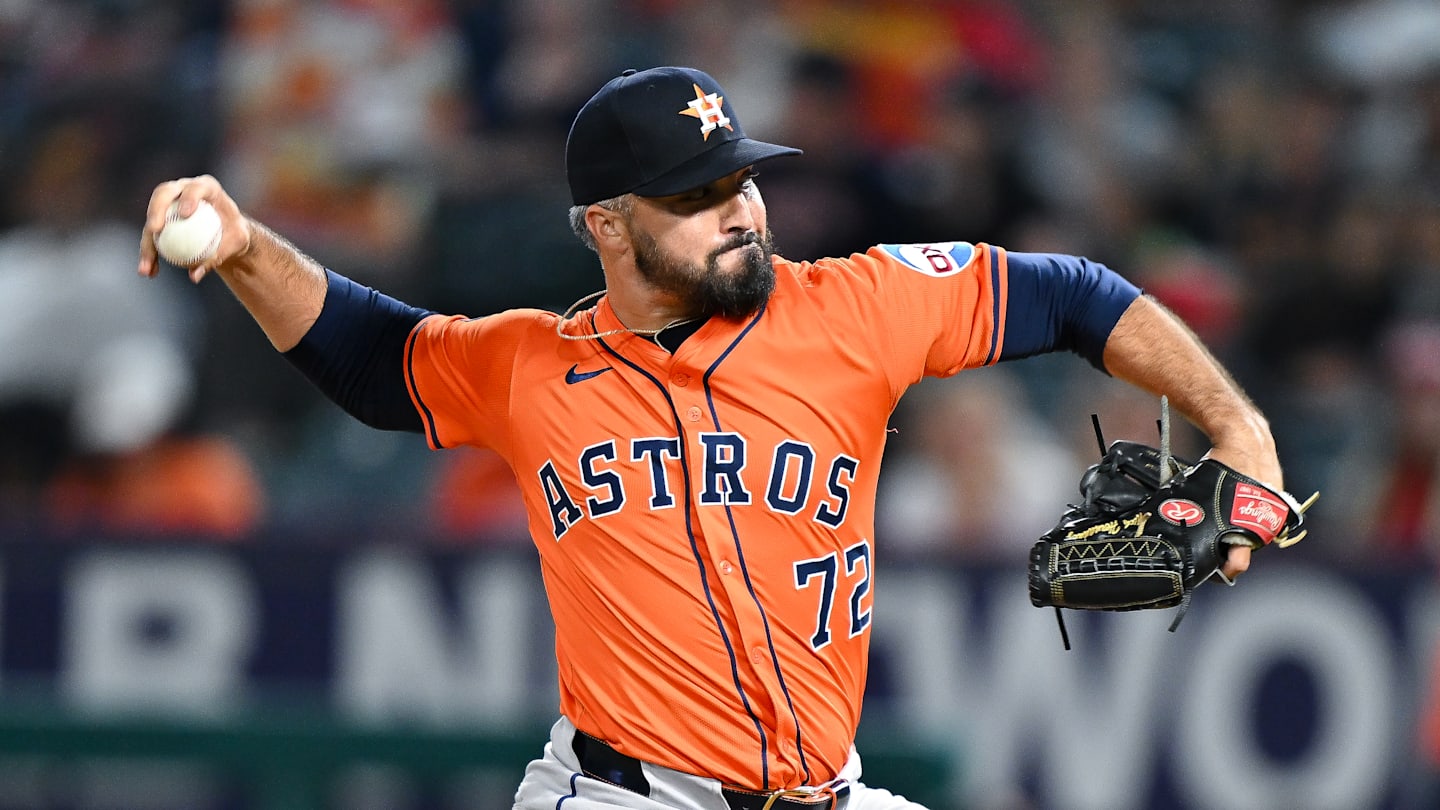
The Astros have developed a reputation for being one of the most forward-thinking teams in MLB, largely due to their data-driven approach to the game. This focus on advanced analytics and sabermetrics has made them pioneers in sports analytics, and much of their recent success is attributed to their willingness to embrace technology. Under the leadership of figures like Jeff Luhnow and manager A.J. Hinch, the Astros became a model franchise, emphasising not just raw talent, but also the understanding of the game through statistics and data. This analytical approach led the team to make bold moves in the player development system, focusing on pitching development and offensive strategy. The team's ability to adapt and innovate, especially in areas like pitching mechanics and hitting approaches, played a major role in their rise to dominance in the MLB during the late 2010s.
The Astros' team culture is also rooted in a strong work ethic and a competitive spirit. They have developed a reputation for being tough, both mentally and physically, often overcoming obstacles such as injuries, controversy, and tough opponents. This resilience has been a hallmark of the team, and it has served them well during both their playoff runs and their World Series victories. Additionally, the team's culture encourages team-first thinking, often emphasizing the collective strength of the roster rather than individual star power. The Astros foster an environment where players support each other, making it a desirable place for athletes to grow and thrive.

The Astros enjoy a loyal, passionate fanbase, particularly in Houston and the greater Texas area. The team’s popularity has grown significantly in recent years, especially with their back-to-back World Series appearances in 2019 and 2021, which have only solidified their place in the hearts of fans. The Astros have embraced their community, regularly engaging with fans through fan events, social media, and interactive experiences at Minute Maid Park. Their fanbase is known for being enthusiastic and supportive, consistently showing up in large numbers for home games, even during challenging seasons. The fan culture is vibrant, with watch parties, tailgating, and team chants filling the stadium and extending beyond the ballpark to the broader community. The Astros' fans are proud of their team, especially given the challenges they faced during the sign-stealing scandal and how the team bounced back from the controversy to become a dominant force in MLB once again.

The Astros play their home games at Minute Maid Park, an iconic stadium located in downtown Houston. Opened in 2000, the park features a retractable roof that ensures games can be played regardless of the weather, which is especially important in Houston’s hot and humid climate. With a seating capacity of approximately 41,000, Minute Maid Park is known for its unique features, including a train that runs along the outfield wall, a homage to the city’s railroad history. The park's design incorporates a retro-modern aesthetic, with elements like the "Hill" in center field, which adds a quirky charm. Fans can also enjoy a wide range of food options and fan experiences, including interactive displays and fan zones. Minute Maid Park is considered one of the most fan-friendly stadiums in MLB, offering an engaging atmosphere both on and off the field. The stadium's location in downtown Houston also makes it a central part of the city's culture, and it has become a destination for both sports fans and tourists.
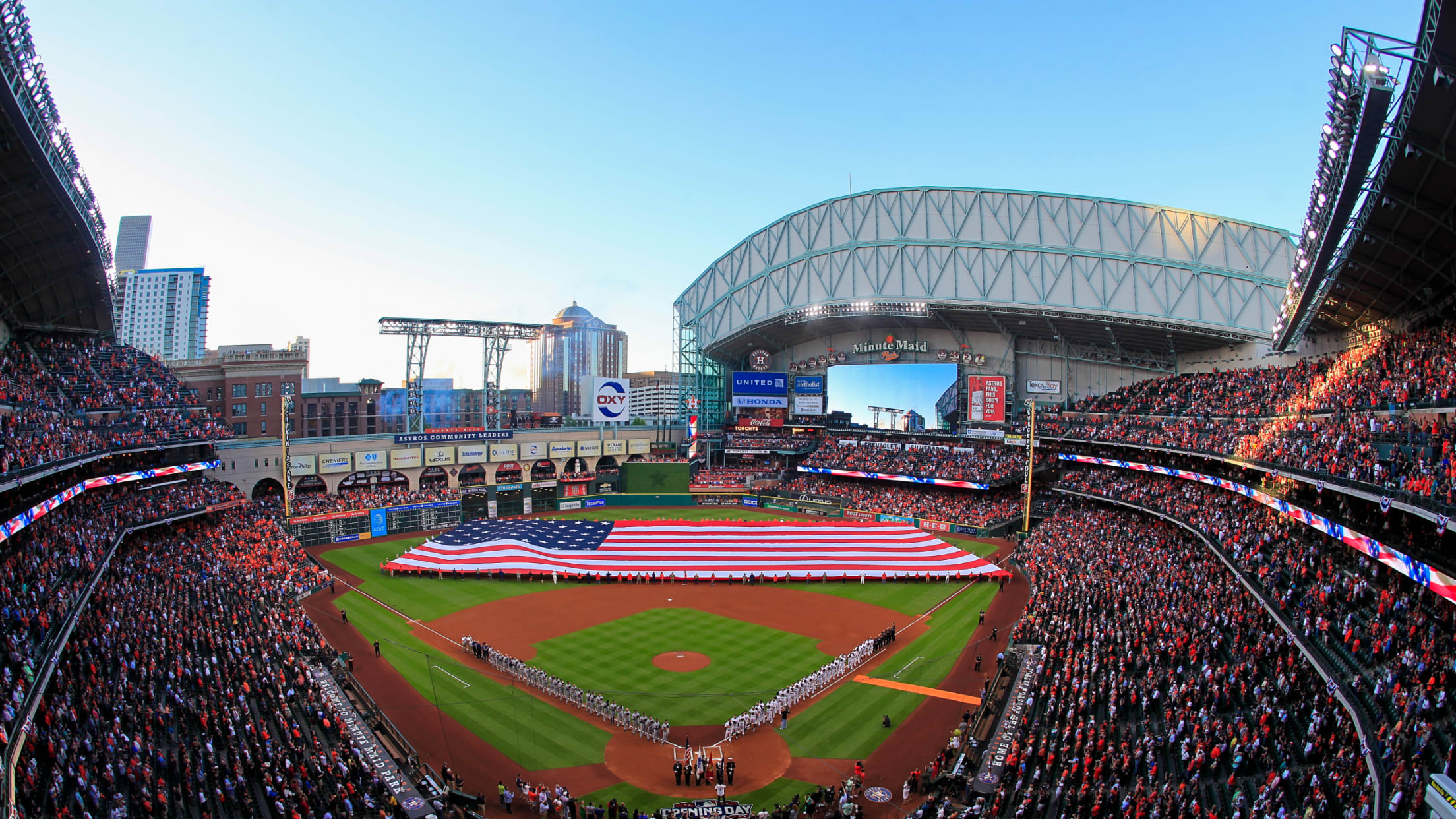
The Astros have several key rivalries, particularly with teams in their own division. The most prominent of these is the Battle of Texas against the Texas Rangers, which is often a fiercely contested match-up. This rivalry has grown in intensity due to both teams’ proximity and competitive nature, with the Astros and Rangers regularly fighting for AL West supremacy. The Astros’ rise to prominence in the 2010s coincided with a period of struggle for the Rangers, but that has not lessened the intensity of their rivalry.
Another key rivalry for the Astros is with the Los Angeles Angels, with whom they have had many thrilling games, particularly when both teams have been in contention for the division title. The Astros’ rivalry with the Chicago White Sox also grew during their 2017 World Series win, as the Astros faced the White Sox in a playoff series that added fuel to their competitive nature. The New York Yankees also have a heated rivalry with the Astros, especially after the sign-stealing scandal of 2017. The animosity between the two teams has led to intense playoff matchups and a rivalry that continues to linger despite time passing since the controversy.

The Astros have been home to some of the most iconic players in baseball in recent years. Jose Altuve, Carlos Correa, George Springer, and Justin Verlander are just a few of the names that have helped define the team. These players, among others, have led the Astros to multiple division titles, playoff appearances, and World Series championships, with the 2017 World Series win being the pinnacle of the franchise's success. The team has earned a reputation for developing homegrown talent, with a focus on both offensive power and elite pitching. As of recent years, the Astros remain one of the most successful teams in MLB, making regular playoff appearances and consistently competing for the AL West crown.
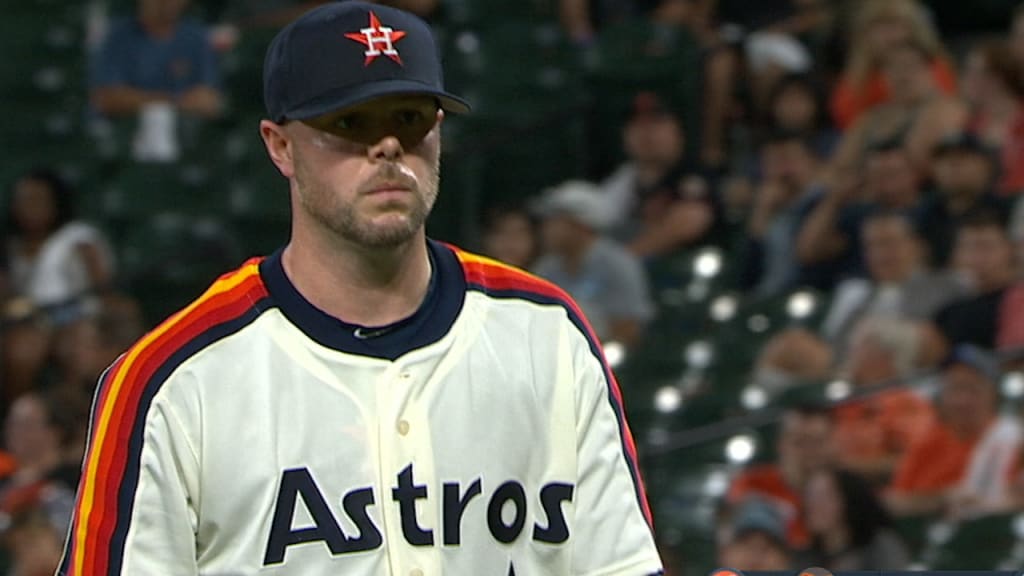
The Houston Astros were founded in 1962 as the Colt .45s and were one of the expansion teams added to Major League Baseball (MLB) in the early 1960s. The team’s original name, the Colt .45s, was a nod to Houston’s reputation as a frontier town, and the team’s early years were focused on establishing a foothold in the National League. The franchise quickly became known for its early struggles but began to build momentum in the years that followed.
In 1965, the team was rebranded as the Houston Astros in homage to the city’s connection to NASA and the space race, as Houston was the home of Mission Control for the United States' space program. This change not only reflected the city's rising significance in space exploration but also set the tone for the team's future, one that embraced innovation and forward-thinking concepts. The team began to build a unique identity during this era, highlighted by their move to the Astrodome in 1965, the world's first domed stadium, which became an architectural marvel. The Astrodome would serve as the home for the Astros for nearly four decades.
/cdn.vox-cdn.com/uploads/chorus_image/image/57353275/GettyImages_579664794.0.jpg)
The Astros’ first real taste of success came in the 1980s, with the team becoming a regular contender in the National League. The 1980 season was particularly notable, as the Astros finished with the best record in the National League West and made their first appearance in the National League Championship Series (NLCS). Although they lost to the Philadelphia Phillies, the Astros’ success during this period marked the beginning of a sustained era of competitiveness.
The 1980s and 1990s saw the rise of key players such as Nolan Ryan, one of the greatest pitchers in MLB history, who joined the team in 1980. Ryan’s presence helped elevate the team’s pitching staff, and his career achievements, including his record for strikeouts and no-hitters, became a defining feature of the Astros during these years. However, the Astros continued to struggle with consistency, and despite having solid teams, they failed to make a significant impact in the postseason during much of the 1990s.
During this era, the team also saw key players like Craig Biggio and Jeff Bagwell, who would go on to become two of the most iconic figures in Astros history. Biggio, an outstanding second baseman, and Bagwell, a slugger with a powerful bat, were foundational to the team’s success. Both players played significant roles in establishing the Astros as a competitive force in the National League.

The turn of the century brought significant changes to the Astros franchise. After several years of falling short in the playoffs, the Astros finally reached the pinnacle of MLB in 2005, when they made their first World Series appearance. This achievement marked a historic moment in the club's history, as they advanced to face the Chicago White Sox in the World Series. Although they were swept in four games, the Astros’ journey to the World Series was a remarkable feat and represented the culmination of years of rebuilding efforts.
The Astros’ roster during the early 2000s was anchored by key players like Lance Berkman, Roy Oswalt, and Brad Lidge, who helped bring the team back into contention after a period of mediocrity. Despite the disappointing loss in the 2005 World Series, the Astros remained a playoff contender throughout the decade and continued to feature a strong pitching staff and dynamic offense.
In 2007, the team made its second consecutive playoff appearance, but they fell short in the NLDS, further highlighting the Astros' inability to break through in the postseason. By the end of the decade, however, the franchise began to face declining performance and needed to rebuild its roster for long-term success.
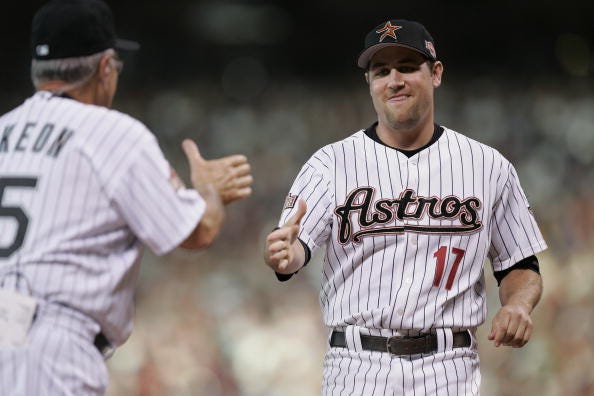
The early 2010s marked a difficult period for the Houston Astros, as they struggled both on and off the field. The team underwent a significant rebuilding phase, with an emphasis on developing young talent and focusing on analytics. In 2011, the Astros moved to the American League as part of MLB's realignment, transitioning to a new era in the AL West division. This shift was accompanied by a series of roster changes, including trades that sent many of the team’s top players, including Hunter Pence and Michael Bourn, to other teams in return for prospects.
During these years, the Astros’ performance was poor, with the team finishing at or near the bottom of the AL West standings. However, the struggles of the early 2010s laid the groundwork for the Astros’ eventual success, as the franchise heavily invested in player development and analytics, influenced by new general manager Jeff Luhnow, who had previously been involved in the St. Louis Cardinals' data-driven approach.
The mid-2010s marked a dramatic turnaround for the Astros, as the team began to emerge as a dominant force in MLB. Under the leadership of A.J. Hinch and with a roster featuring young stars like Jose Altuve, Carlos Correa, George Springer, and Dallas Keuchel, the Astros rebounded from their rebuilding years to become a World Series contender. Their 2017 World Series victory marked the franchise's first-ever championship, a milestone that forever changed the team's legacy.
However, the 2017 championship was marred by the sign-stealing scandal, in which it was revealed that the Astros had used technology to illegally steal signs during their playoff run. This controversy led to significant penalties, including fines, suspensions, and the firing of A.J. Hinch and general manager Jeff Luhnow. Despite the scandal, the Astros continued to be one of the most successful teams in MLB, consistently competing in the playoffs and making multiple World Series appearances, including in 2019 and 2021.
The team’s ability to maintain success despite the fallout from the scandal showed the strength of their player development system and their continued reliance on analytics to build a championship-caliber team. In 2022, the Astros won their second World Series title under the management of Dusty Baker, solidifying their place as one of the most successful franchises in the sport.
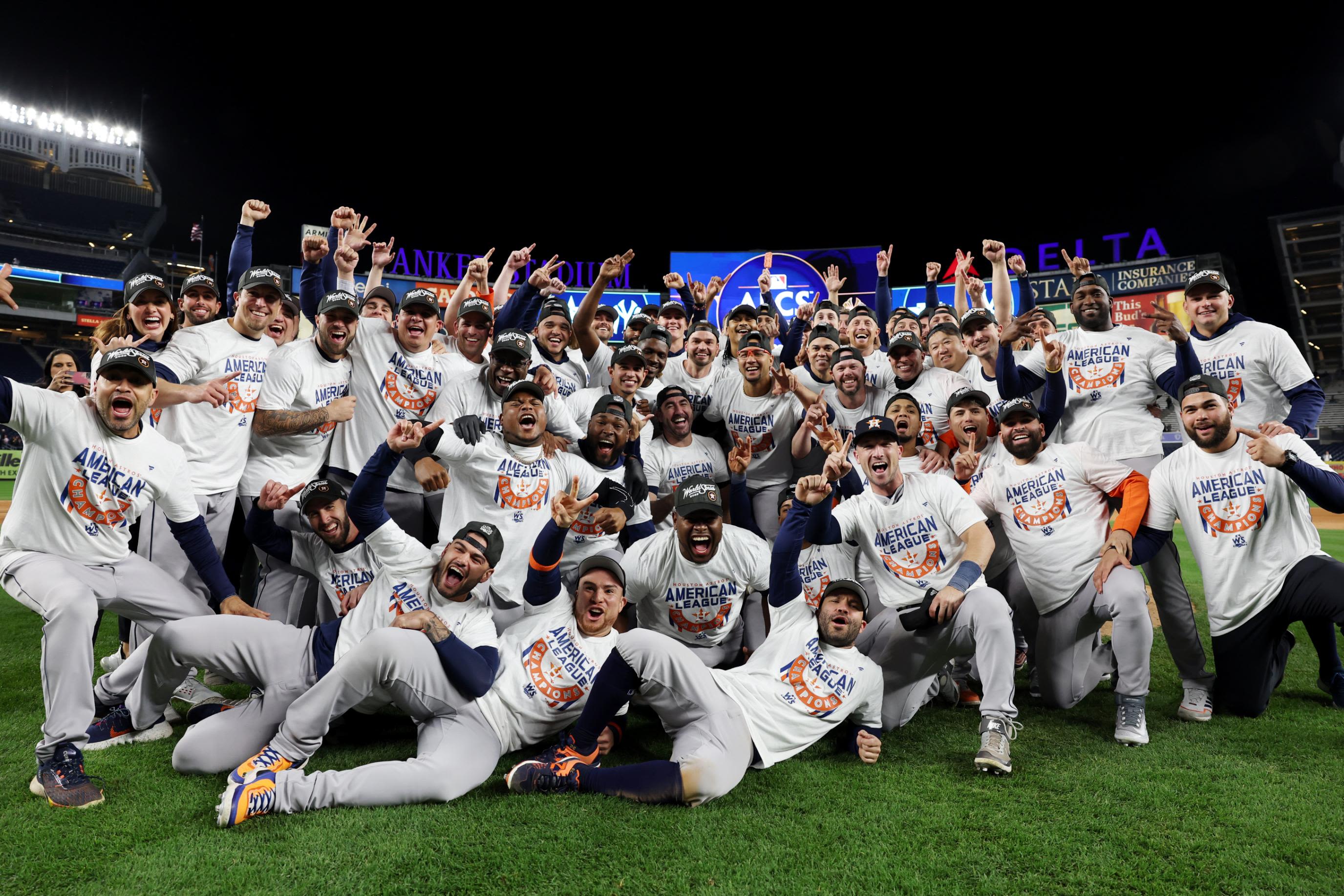
The Houston Astros are owned by Jim Crane, a businessman and entrepreneur who purchased the team in 2011. Crane’s ownership marked a new era for the Astros, as he was committed to turning the franchise around after a period of underperformance. Prior to his acquisition of the Astros, Crane had a successful career in business, particularly in logistics and transportation. Under his leadership, the Astros underwent a rebuilding process that saw a heavy emphasis on analytics, player development, and a focus on long-term success. Crane has been recognized for his willingness to invest in the team, both in terms of financial resources and infrastructure, ensuring that the Astros are positioned to be a top contender in Major League Baseball.

The ownership structure of the Astros is relatively straightforward, with Jim Crane serving as the principal owner. However, Crane’s ownership group includes various business partners and investors, which helps provide the financial backing necessary to support the team’s operations. The organization is run by Crane as the chairman and CEO, and key decisions regarding the team's operations, finances, and direction are made under his leadership. The front office includes key figures such as the general manager, manager, and various specialized departments that focus on different aspects of team operations, including analytics, scouting, and player development.
While Jim Crane maintains a strong influence over decision-making, the structure of the team involves collaboration between him, key executives, and department heads to ensure the smooth running of the Astros franchise. This structure has been instrumental in the team’s rebuilding and eventual rise to the top of Major League Baseball.
The Astros’ staff is composed of various departments, each dedicated to specific areas of the organization’s operations. The key areas of focus are:
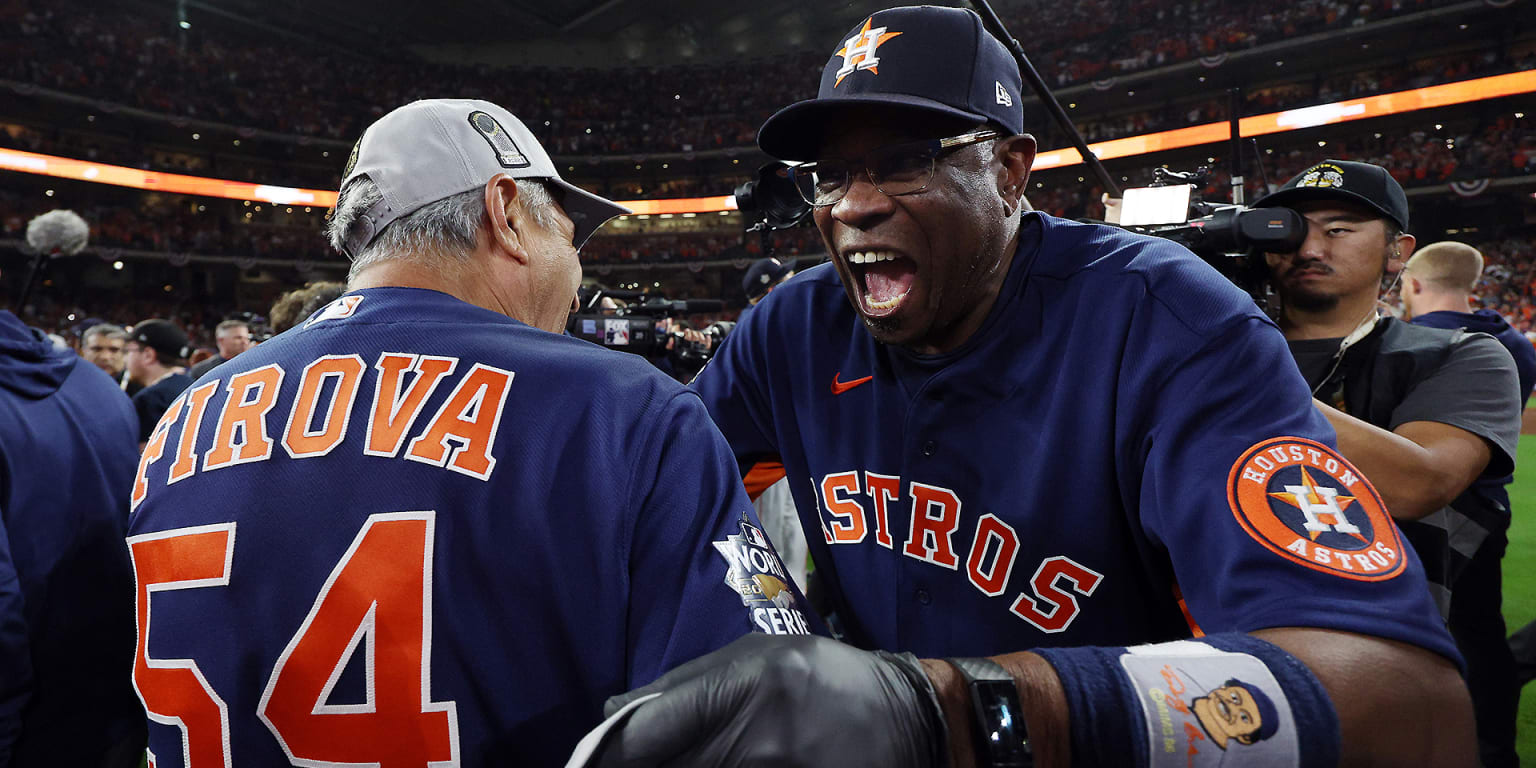
The Astros play their home games at Minute Maid Park, a state-of-the-art facility that has become a key part of the team's identity. The stadium, which opened in 2000, is equipped with a retractable roof to protect against Houston's hot and humid weather, ensuring that games can be played regardless of the conditions. Minute Maid Park is known for its unique features, including a train running along the outfield wall, which serves as a nod to Houston’s railroad history. The outfield hill and manual scoreboard are also notable aspects of the stadium’s design.
In addition to the stadium, the Astros have invested heavily in training facilities and infrastructure for their minor league teams and player development. This includes a robust spring training complex located in West Palm Beach, Florida, as part of a shared facility with the Washington Nationals. The Astros’ commitment to providing top-tier facilities for both major and minor league players is essential to their ongoing success.
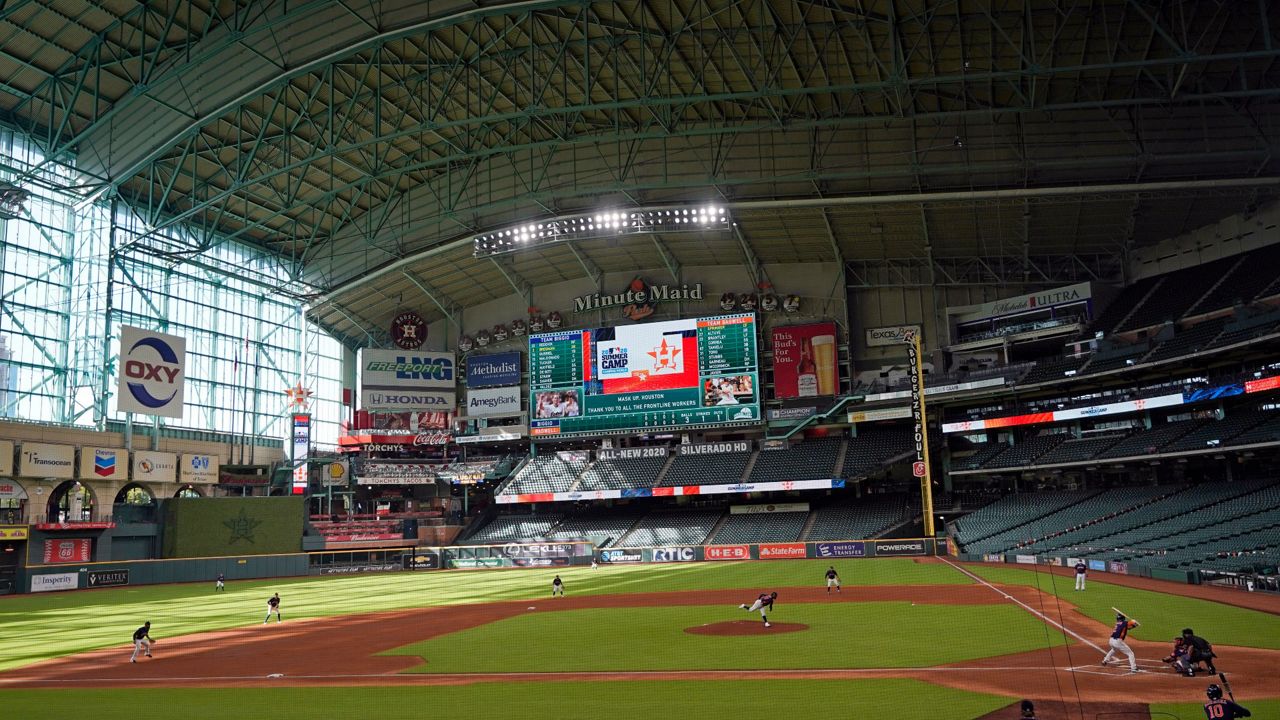
The financial health of the Houston Astros has improved dramatically under Jim Crane's ownership. Since taking over the team in 2011, Crane has made substantial investments in player development, scouting, and team infrastructure. The team’s revenue streams come from ticket sales, sponsorships, merchandise, and broadcasting rights. The Astros’ success on the field—including their 2017 World Series win and subsequent playoff appearances—has increased the team’s visibility and helped drive increased revenue.
The sign-stealing scandal that emerged in 2019 did have a temporary impact on the Astros' brand, but the franchise has continued to recover financially and has remained a top draw for fans in Houston and around the world. The team has also made strategic investments in player contracts, with key players like Jose Altuve and George Springer playing central roles in the team's success. In recent years, the Astros have been able to maintain a relatively high payroll due to their strong financial position.

The future outlook for the Houston Astros is strong. With a solid foundation in player development, analytics, and team-building, the Astros are poised to remain competitive for the foreseeable future. The team has a young, talented core, including players like Jose Altuve, Yordan Alvarez, and Kyle Tucker, which suggests that the Astros will continue to compete for division titles and World Series championships.
The team’s commitment to innovation in player performance and analytics ensures that they will remain at the cutting edge of the sport. Additionally, the Astros’ investments in international scouting, youth development, and technology provide the franchise with the tools necessary to stay ahead of their competition.
Financially, the Astros are expected to continue to thrive, with Minute Maid Park remaining a vibrant destination for fans and broadcasting deals helping to bolster the team's revenues. The franchise’s growing international presence and continued success in the postseason should ensure their place as one of the most successful and financially stable teams in Major League Baseball.
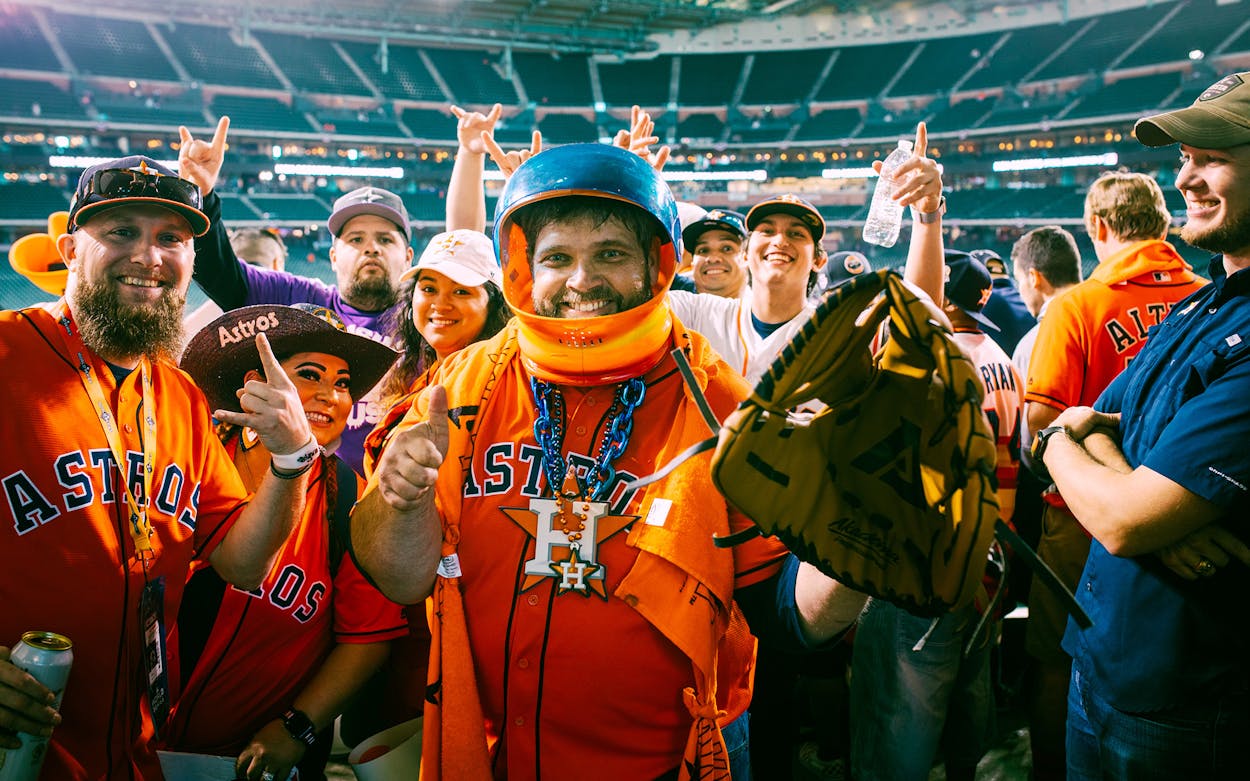
Books
Websites
Articles
Interviews and Documentaries


Becoming a leading global provider of digital solutions and services for the sports industry, enabling our clients to achieve their goals and reach their full potential.
We aspire to be a trusted partner and advisor to our clients, leveraging our expertise and passion for sports to help them succeed in a rapidly changing market.






